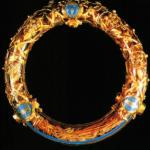THE QUESTION:
What do U.S. religious groups teach about the contentious abortion issue?
THE RELIGION GUY’S ANSWER:
Remarkably, the abortion issue is as contentious as when the U.S. Supreme Court liberalized law 46 years ago, with new state restrictions injecting it into courtrooms and the 2020 campaign. The following scans significant teachings by major religious denominations.
The Catholic Church, the largest religious body in the U.S. (and globally), opposes abortion, without exceptions. A Vatican Council II decree from the world’s bishops declares that “from the moment of its conception, life must be guarded with the greatest care,” and calls abortions “abominable crimes.” The official Catechism says the same and dates this belief back to Christianity’s first century (Didache 2:2, Epistle of Barnabas 19:5).
Eastern Orthodox and Catholic leaders have jointly affirmed “our common teaching that life begins at the earliest moments of conception” and is “sacred” through all stages of development. However, America’s 53-member Assembly of Canonical Orthodox Bishops acknowledges “rare but serious medical instances where mother and child may require extraordinary actions.”
A Southern Baptist Convention resolution before the Supreme Court ruling advocated permission in cases of “rape, incest, clear evidence of severe fetal deformity” or damage to a mother’s “emotional, mental, and physical health.” The SBC later shifted toward strict conservatism on many matters. A 2018 resolution affirms “the full dignity of every unborn child” and denounces abortion “except to save the mother’s physical life.”
Two United Methodist Church agencies helped establish the Religious Coalition for Abortion Rights (since renamed Religious Coalition for Reproductive Choice) to champion women’s unimpeded choice. But the 2016 UMC conference directed the agencies to leave the coalition, and voted to withdraw endorsement, upheld since 1976, of the Supreme Court’s “legal right to abortion.” The UMC recognizes “tragic conflicts of life with life that may justify” abortion. It opposes late-term abortion except for danger to the mother’s “physical life” or “severe fetal anomalies incompatible with life.”
The Church of Jesus Christ of Latter-day Saints says members “must not submit to, perform, encourage, pay for, or arrange” abortions. “Exceptional circumstances may justify” it, though “not automatically,” with incest, rape, “serious jeopardy” to the mother’s “life or health,” or “severe defects” such that the baby cannot survive beyond birth.
The largest African-American denomination, the Church of God in Christ, urges believers to be “actively engaged in rescuing preborn children” from abortion, aids pregnant women, crisis pregnancy centers, and adoption agencies, supports the National Black Pro-Life Coalition, and opposes Planned Parenthood. Its presiding bishop joined a 2016 pre-election statement telling Hillary Clinton innocent unborn lives are “a gift of God that we are called upon to protect.” (Major black Baptist groups generally leave decisions to each congregation or individual.)
The Evangelical Lutheran Church in America believes “human life in all phases of its development is God-given and, therefore, has intrinsic value.” However, abortion can be “morally responsible” with a “clear threat” to the mother’s physical life, rape, incest, or “extreme fetal abnormality.” Prior to viability, laws should reflect that, with public funding for low-income women. The Lutheran Church – Missouri Synod specifies only the mother’s life exception.
The Assemblies of God’s detailed biblical statement typifies views of evangelical churches. It calls for protection of each life from conception, and deems abortion “morally unacceptable” for birth control, gender selection, or “elimination of the physically and mentally handicapped,” but accepts it in “exceedingly rare” cases of likelihood the mother will die.
The Presbyterian Church (USA) says abortion can be “morally acceptable,” though not required, as a “last resort.” “Possible justifying circumstances” include rape, incest, when “the physical or mental health” of mother or child is “gravely threatened,” or “severe physical or mental deformity.” It affirms “the ability and responsibility” of women to choose.
The Episcopal Church believes “all human life is sacred from its inception” so abortion “should be used only in extreme situations” and not for “family planning, sex selection, or any reason of mere convenience,” and it expresses “grave concern” about late-term procedures. The church states “unequivocal opposition” to governmental limits on women’s choice.
Seventh-day Adventist Church leaders’ “guidance” says “abortion should be performed only for the most serious reasons.” Examples are “significant threats” to the mother’s life, “serious jeopardy to her health,” “severe congenital defects” of the fetus, rape, or incest. The final decision is up to the mother, who should not be coerced either to give birth or to abort.
Even before the Supreme Court’s ruling, the United Church of Christ advocated repeal of laws against abortion.
Orthodox Judaism upholds the Talmud’s teaching that permits destruction of a child in the womb only to save the mother’s life. In 1967, rabbis in the Reform branch advocated liberalization to protect a mother’s broad physical or emotional health or with rape or incest, and subsequently opposed all legal restrictions. Conservative Judaism’s rabbinate later endorsed legal choice, and affirms abortion to prevent “severe physical or psychological harm,” or when the fetus is “severely defective.”
The Fiqh Academy of the 57-nation Organization of Islamic Cooperation declares that “a fetus acquires the right to survive since the beginning of its formation. Hence, it should not be subjected to hazardous acts like abortion.” However, a Muslim World League fatwa permits abortion within 120 days of conception (the traditional time of human ensoulment) to protect the mother’s life or if the fetus has a serious congenital anomaly.
Switching to public opinion: Gallup finds general sentiment split at 48 percent each for “pro-choice” and “pro-choice,” while 50 percent of Americans want abortion to be “legal only under certain circumstances” as opposed to always-legal or never-legal options. Pew Research’s less precise two-way choice found Catholics evenly split between legal “in all or most cases” versus illegal in “all or most cases.” With Protestants, “all or most” legality was favored by 33 percent of “evangelicals,” 52 percent in “historically black” denominations, and 60 percent in “mainline” churches. A further breakdown: https://www.pewresearch.org/fact-tank/2018/01/22/american-religious-groups-vary-widely-in-their-views-of-abortion/ft_18-01-19_abortionreligiousgroups













